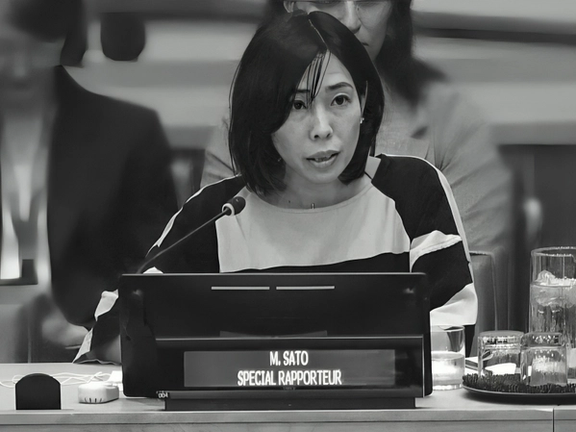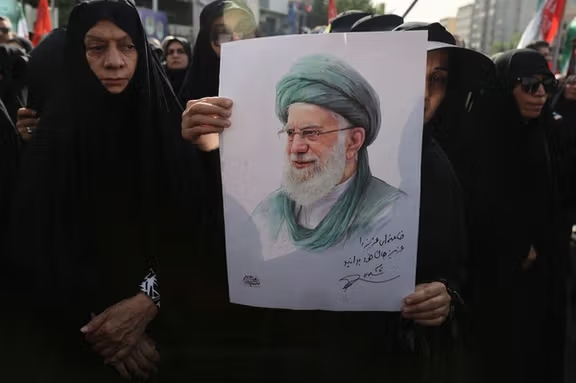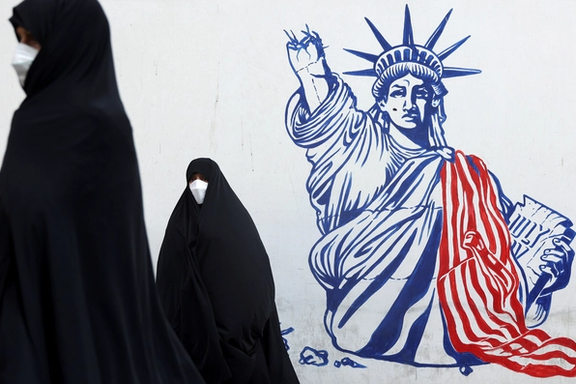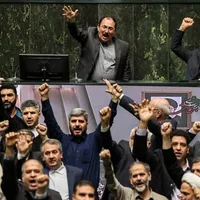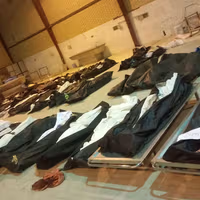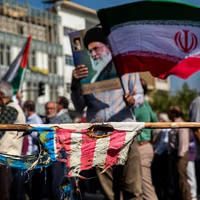“Iranian authorities don't tell [us] where they are being held,” Cécile’s sister Noémie told Iran International on Friday.
The couple were arrested in May 2022 while on a tourist trip to Iran.
Noémie said that since the Israeli strike, they have had only one consular visit, on July 1, when the family was relieved to learn that they were "at least still alive.”
She said that the couple had been held in Ward 209 — which operates under the oversight of Iran's Intelligence Ministry — at the time of the strike, and that they had remained there for more than three years.
“They were held in 209 for more than three years,” she said. “They were in solitary confinement several months.”
Ward 209 lies outside the prison's regular judicial oversight and has been described by Human Rights Watch as a “prison within a prison,” where detainees are frequently subjected to prolonged solitary confinement, denied legal access, and subjected to harsh interrogation that may amount to torture.
The couple were moved shortly after the blasts. “We understood [Cécile] was transferred to Qarchak prison,” Noémie said. “She was transferred to Qarchak prison for 24 hours. Then she was transferred to an undisclosed place — she was blindfolded so she doesn’t know where she is being held right now.”
“Jacques was transferred to an undisclosed location right after the bombings,” she added.
The family has not had direct contact with either of them since May 28.
Noémie said Iranian authorities recently charged the couple with “spying for Israel,” “conspiracy to overthrow the regime,” and “corruption on Earth” — charges that carry the death penalty under Iranian law.
“We don’t have more specific information. We only know a judge told them the charges,” she said.
She said the couple is not allowed independent legal representation and that “nobody has access to their case file.”
Psychological torture
During their last direct contact on May 28, Cécile told her family that a judge had warned them a verdict would be issued soon — and that it would be “very severe.”
“The judge had been telling them that for six months,” Noémie said. “Another example of psychological torture.”
Asked why Iranian authorities may be targeting the couple so harshly, Noémie said, “To put pressure on France, I assume. We don’t know what they want and why they persecute Cécile and Jacques this badly.”
She accused Iranian authorities of ongoing abuse. “The Iranian authorities are continuing to torture Cécile and Jacques psychologically after more than three years of detention in inhuman conditions, after they narrowly survived the bombings, with charges that carry the death penalty,” she said.
“They must stop trampling on Cécile and Jacques's rights, disclose their place of detention, allow them to contact their families, and above all hand them over to the French authorities as a matter of urgency.”
France has condemned the charges as politically motivated and continues to demand the couple’s immediate release. Foreign Minister Jean-Noël Barrot has called the accusations “unjustified and unfounded.”
Noémie said she believes the French government is making efforts to help, but called the lack of transparency “complicated and frustrating.”
“My message to Western leaders, especially European, is that they have to work together to put an end to hostage diplomacy,” she added.
Kohler, a teacher, and Paris, her partner, are the last known French citizens held in Iran. French President Emmanuel Macron has described them as “state hostages.”
France and other European Union members accuse Iran of practicing “hostage diplomacy” — detaining foreigners to pressure Western governments.
Iran denies the accusation. Its officials say the arrests followed legal procedures and reject claims of mistreatment.

